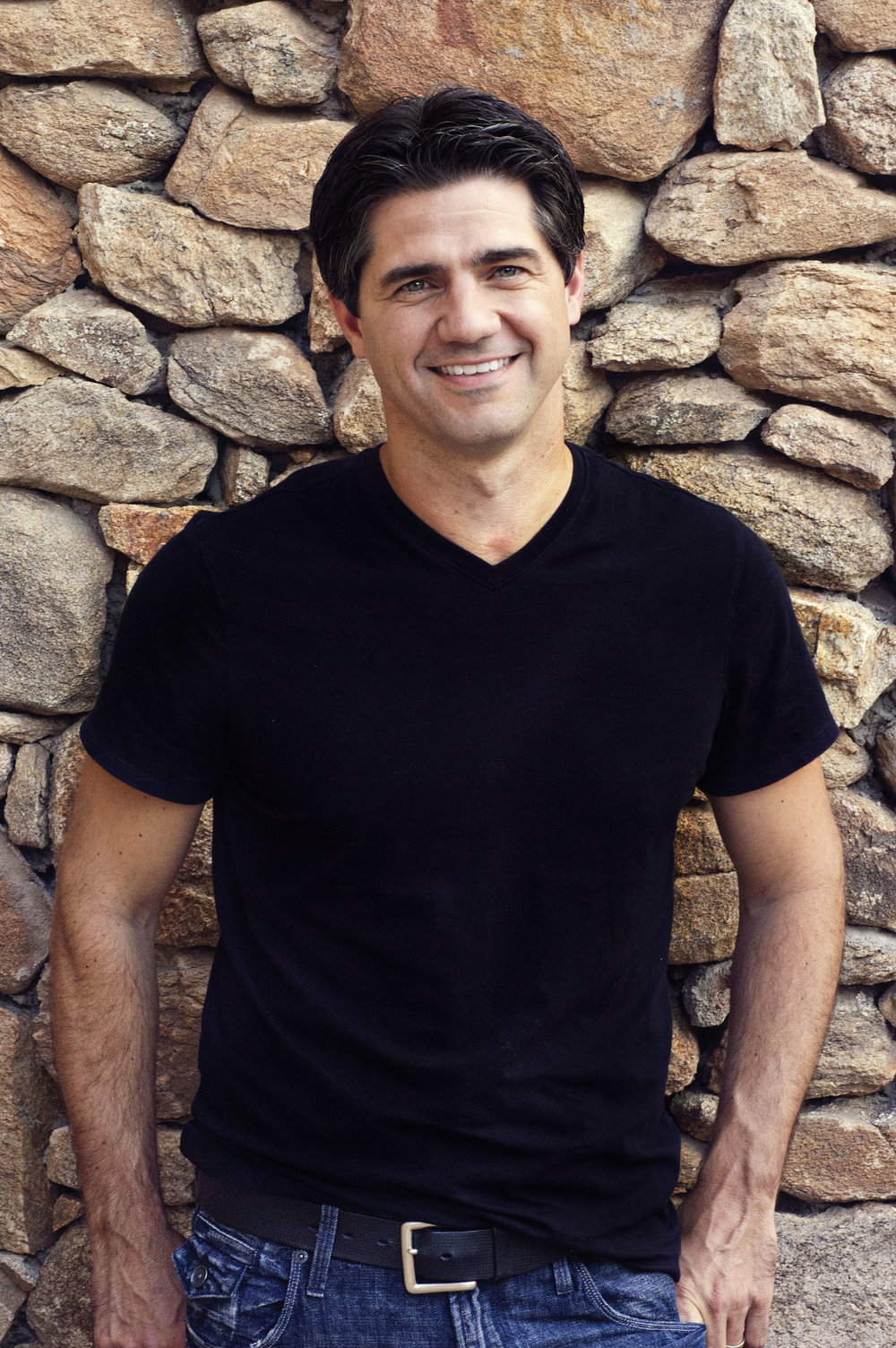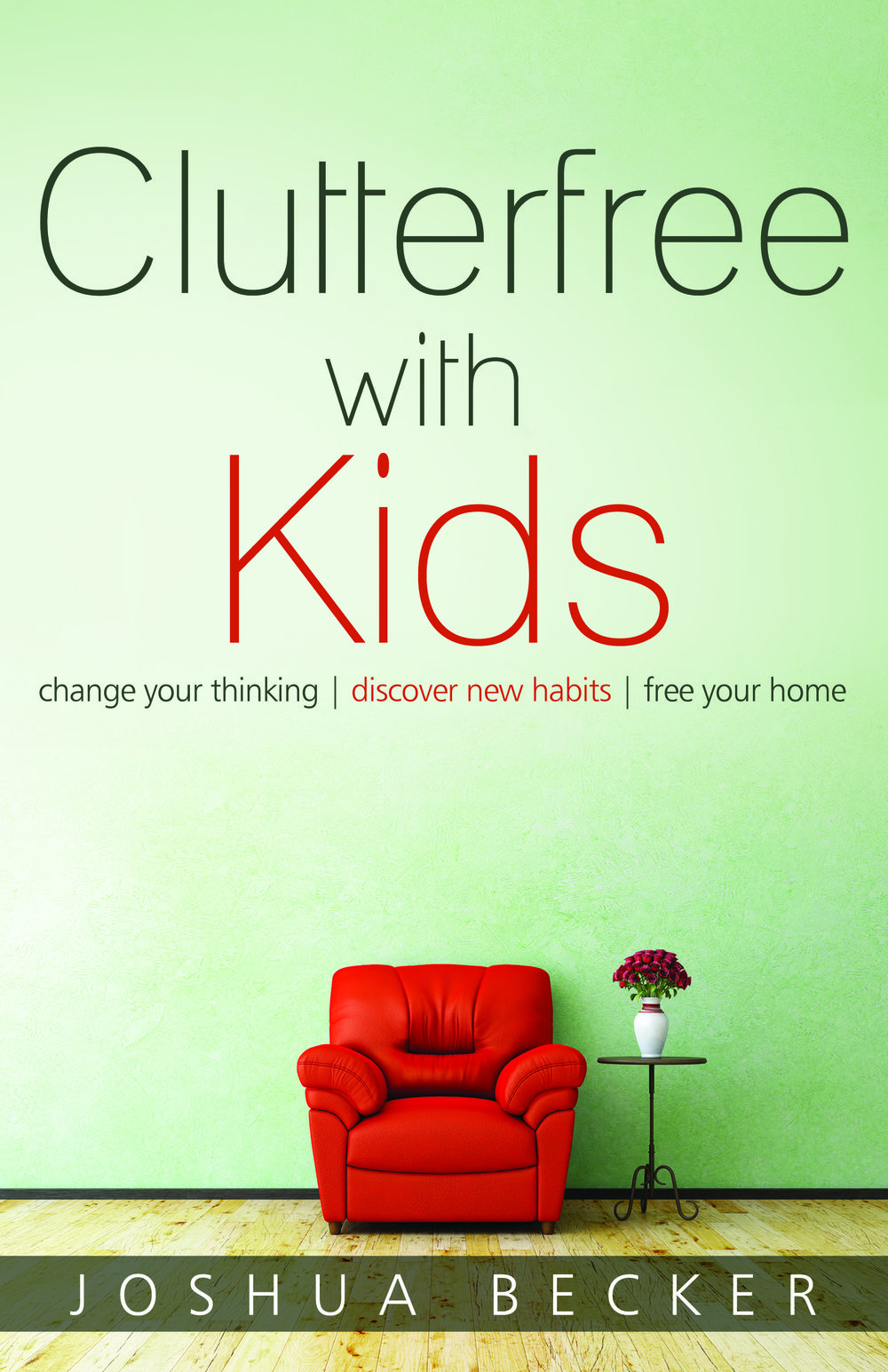Ask the Expert: Joshua Becker

It’s thrilling to begin our third "Ask the Expert" interview series! In the past few years we’ve created a monthly venue to connect you with industry thought leaders. We’ve enjoyed inspiring conversations with best-selling author Gretchen Rubin, productivity guru David Allen, organizer and future thinker Judith Kolberg, theory of Multiple Intelligences creator Dr. Howard Gardner, and many more. The 2014 interviews continue with another dynamic group of experts. I’m excited to start the year with author, blogger and minimalist trailblazer, Joshua Becker to share his wisdom about simple living and fresh starts.
While I’ve been a loyal @Joshua _Becker Twitter follower for a while now, we recently “met” while appearing in a Selfication blog post together about simplifying and organizing your life. Shortly thereafter, I invited Joshua to contribute to one of my posts about life balance. I asked him, “What do you want more of and less of to create your desired balance?” Being true to his minimalist philosophy, he provided an insightful and concise response, “More focus on the important things. Less distraction on the little.” A few weeks later he contacted me to see if I’d be interested (and I was) in reading an advance copy of his soon to be released book, Clutterfree with Kids. The book is filled with practical strategies and deep wisdom. It’s a must read! His ideas provide a great catalyst for reconsidering our lives. My deepest gratitude and thanks goes to Joshua for taking the time to join us. Before we begin, here’s more about him.

Joshua Becker is the founder and editor of Becoming Minimalist, a website that inspires others to find more life by owning less. His rational approach to minimalist living has made him one of today’s most-influential simple living advocates. He is also the best-selling author of Simplify: 7 Guiding Principles to Help Anyone Declutter Their Home and Life and the newly released, Clutterfree with Kids. He lives with his wife and two children in Peoria, AZ. You can connect with Joshua on Facebook, Twitter, or website.
Linda Samuels: As an author, speaker, blogger and dad, you inspire others to consider the minimalist approach to life. How do you describe minimalism?
Joshua Becker: I describe minimalism as the ‘intentional promotion of everything I most value and the removal of anything that distracts me from it.’ When many people hear the word ‘minimalism,’ they often imagine barren walls, tiny houses, or living out of backpacks. But that is not how we view it. We’ve just come to understand that material possessions do not add lasting joy to our lives—even worse, they often distract us from the very things that do. We have two small kids. We live in the suburbs. We enjoy having people over to our house. Our lives are unique. Minimalism is always going to look different for us. But it’s going to be about removing the excess possessions that keep us from the things we love the most.
Linda: You’ve said, “There is more joy to be found in owning less than can ever be found in organizing more.” What are some benefits of “de-owning?”
Joshua: The benefit of owning less is an important concept—one that most people can easily relate to. It’s just that in this world where we are constantly told to buy more and more, we never take a step back and ask ourselves, “How would my life be better if I owned less stuff?” For starters, we’d have less cleaning, less stress, less debt. We’d experience more freedom, more time, and more intentionality—more opportunity to pursue our greatest passions. And eventually, when the desire for physical possessions is removed, our hearts are open to contentment, gratitude, and generosity. It’s really quite wonderful in every respect.
Linda: In your just released book, Clutterfree with Kids you share many ways to shift perspectives about how families live with and think about their possessions. What are some first steps for clutter-free living?
Joshua: The absolute first step is to rethink the all too common “more is better” mentality. One of the easiest ways to understand clutter is to recognize it as too much stuff in too little space. And our homes are full of stuff: our kitchen cabinets, our closets, our garages, and our toy rooms. The first step to living clutterfree is to remove the things in our homes that are not used or needed. Grab three boxes (donate, recycle, discard), pick one room, and fill them up. The key is not to find more storage solutions for your stuff—the key is minimizing the number of things we own.
Linda: Along with having kids, comes owning toys. You said, “I’m not anti-toy. I’m pro-child.” You make a powerful case that having fewer toys translates into kids with longer attention spans, better social skills, and being more resourceful. What else can you tell us about the “less toys” benefits?
Joshua: And this is proven by scientific studies. Kids who own fewer toys learn to be more creative, more generous, more resourceful and more perseverant with longer attention spans. There are too many parents nowadays who have a hard time saying ‘no’ to their children. But it is good for kids to learn boundaries and to learn that there are other ways to express love than buying toys and giving gifts.
Linda: What has been your biggest personal challenge around becoming a minimalist?
Joshua: I think the biggest challenge for me is often the biggest challenge for others as well. The journey to becoming a minimalist (and I’ll be the first to admit it is a journey, not a destination) is one of the most difficult and fulfilling inward journeys anyone can embark upon. My first mini-van load of things to Goodwill was easy, so was the second. But by the third or fourth vanload of items to drop off, you can’t help but start asking yourself some pretty difficult questions—starting with, “If I didn’t really need this stuff, why did I buy it all in the first place?” And when those questions of life purpose, life focus, and wasted opportunity start beginning to surface, it can be very difficult to realize the level of discontent most of us live our lives in. It is a challenge. And it’s helpful to have someone close to help process the feelings that emerge. It is both highly difficult and beautifully delightful all at the same time.
Linda: Is there anything you’d like to share that I haven’t asked?
Joshua: I think I’ve overstepped my word-limit, so I’ll just leave it at that. Thank you for the opportunity Linda.
You’re most welcome, Joshua. I’m grateful for each of your carefully chosen words. Thank you for all the insights you shared about simple living, minimalism, and the significance of less. Your message is positive and filled with hope. I love how you describe your journey as both “difficult and beautifully delightful.” What a powerful underlying concept you explore about possessing less so you can shift your focus away from stuff management and towards what’s truly important and meaningful.
I invite all of you to join Joshua and me as the conversation continues. We’d love to hear your thoughts about minimalism, fresh starts, or anything else you’d like to share. What resonates with you?
